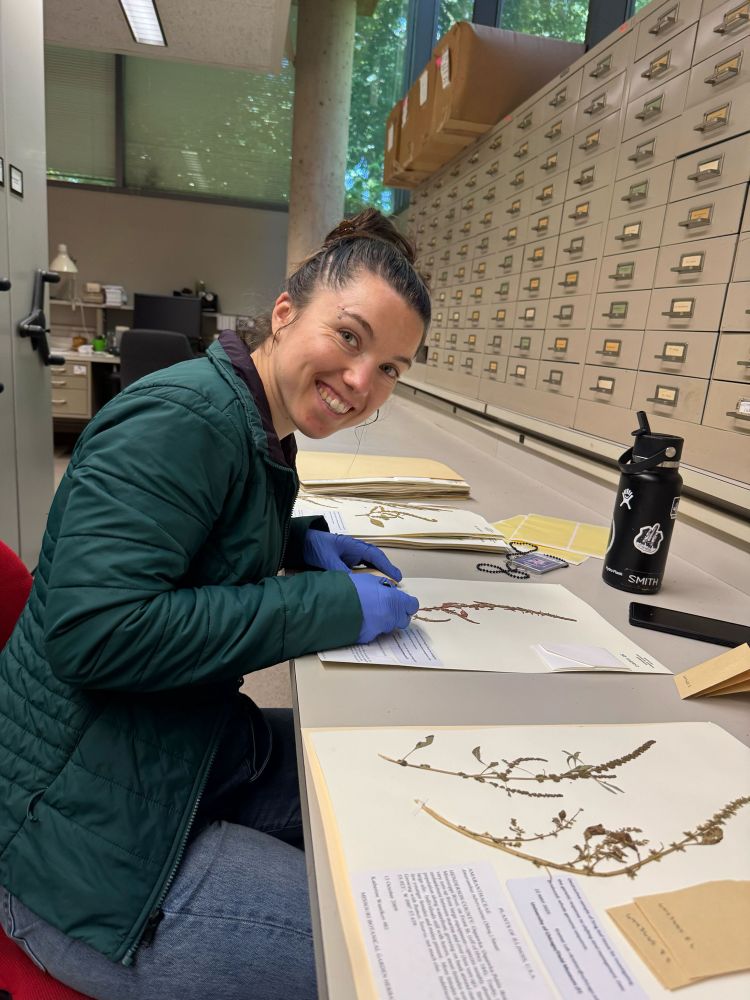Ph.D. at University of Toronto (EEB Dept)
Alumnus IISER Mohali. He/him
Our alumna Dr. Christin Nyhoegen wins the KlarText Prize 2025 for her piece “Penicillin and a Small Dose of Mathematics.”
She shows how math helps improve antibiotic treatments and prevent resistance. 👏
#KlarTextPreis #MPIEvolBio #ScienceCommunication

Our alumna Dr. Christin Nyhoegen wins the KlarText Prize 2025 for her piece “Penicillin and a Small Dose of Mathematics.”
She shows how math helps improve antibiotic treatments and prevent resistance. 👏
#KlarTextPreis #MPIEvolBio #ScienceCommunication

www.biorxiv.org/content/10.1...

www.biorxiv.org/content/10.1...
Please share widely!
#QueerInSTEM #DisabledInSTEM #BlackInSTEM #WomenInSTEM #CarersInSTEM #AcademicSky #HigherED
Please share widely!
#QueerInSTEM #DisabledInSTEM #BlackInSTEM #WomenInSTEM #CarersInSTEM #AcademicSky #HigherED
gitrepo: github.com/ybrandvain/b...
book: ybrandvain.github.io/biostats/
Not complete but at a good point to take a break, and I think its quite usable
dm me with comments , ideas etc
gitrepo: github.com/ybrandvain/b...
book: ybrandvain.github.io/biostats/
Not complete but at a good point to take a break, and I think its quite usable
dm me with comments , ideas etc
-LLMs hyping up bad ideas
-My 5 foster cats, but whether I'm secretly a dog person
-How it would be nice to "skip" & "mute" people in real life 😛
Check it out! 😄
tinyurl.com/yc4hjz2x

-LLMs hyping up bad ideas
-My 5 foster cats, but whether I'm secretly a dog person
-How it would be nice to "skip" & "mute" people in real life 😛
Check it out! 😄
tinyurl.com/yc4hjz2x
www.sciencedirect.com/science/arti...

www.sciencedirect.com/science/arti...


🧪 ⚒️ #Paleobio #EvoBio #Macroecology
academic.oup.com/evolut/artic...

🧪 ⚒️ #Paleobio #EvoBio #Macroecology
academic.oup.com/evolut/artic...
Also go have a look at the original paper if you haven't !
The timeframe of prediction for eco-evolutionary dynamics | PNAS www.pnas.org/doi/10.1073/...
Also go have a look at the original paper if you haven't !
The timeframe of prediction for eco-evolutionary dynamics | PNAS www.pnas.org/doi/10.1073/...



academic.oup.com/genetics/adv...
academic.oup.com/genetics/adv...
Vrinda & team from Dr Deepa Agashe's lab tracked beetle populations for 5+ years in harsh environments. Findings show how traits of founders influenced the long-term survival of their descendants.
🔗 bit.ly/42hsviC
@deepaagashe.bsky.social
🧵Check out the thread to know more!👇
academic.oup.com/evolut/advan...

academic.oup.com/evolut/advan...
Check out the program and
feel free to join the keynotes by presenting your work–abstract submission is open www.microbiome-vif.org/en-US/-/info...
@kathlemon.bsky.social @saramitri.bsky.social @simrouxvirus.bsky.social @halllab.bsky.social @deepaagashe.bsky.social

Check out the program and
feel free to join the keynotes by presenting your work–abstract submission is open www.microbiome-vif.org/en-US/-/info...
@kathlemon.bsky.social @saramitri.bsky.social @simrouxvirus.bsky.social @halllab.bsky.social @deepaagashe.bsky.social
5/6
5/6
@yanwong.bsky.social and I have been developing a method to programmatically drawing these graphs.
🔗 arxiv.org/abs/2508.03958
1/6



